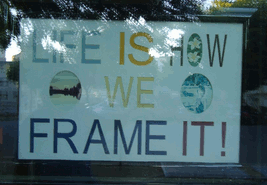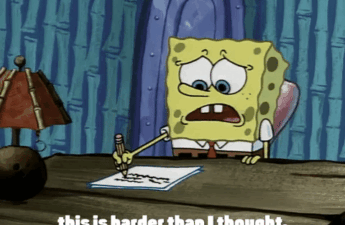Many students get stuck when starting their college essays, convinced their lives are too “boring” or lacking in dramatic experiences to be worth reading about. But college essays aren’t about trauma—they’re about insight. Admissions officers seek understanding of the person—perspective, motivations, and the meaning of one’s experience. And those experiences don’t need to be earth-shattering.…
Tag: College essays
From Sticker Shock to Strategy: What IS the Value of a College Degree?
When parents first read the price tag of college, many are typically anxious. But beyond the sticker shock is a deeper consideration: What is being paid for? Although seemingly a trick question, consider the invitation to reflect, individually, between parents, or as a family to define value for a student’s future. Families make a significant…
FAQ’s for Underclassmen
Many thanks to all the moms of South Placer County National Charity League (NCL) for hosting Jill of Creative Marbles at their recent meeting. I wanted to add more details to questions asked during our lively discussion: ❓ Should my student take the SAT or ACT if many colleges are test-optional? ❓ What if my…
More about Early Admissions
In December, students who applied early admissions—whether Early Action or Early Decision—will receive one of three responses: Admitted, Denied, or Deferred to the Regular Decision pool. Yet, for teenagers, the responses often translate emotionally as: Validated (or Vindicated), Rejected, and In-Between (not quite a rejection, but not an acceptance either). For both students and parents,…
Every. Word. Counts.
“Brevity is the soul of wit.” Polonius, Hamlet, William Shakespeare Being concise, we can communicate with intelligence and clarity. When writing, especially without the chance to explain our meaning as is possible in conversation, brevity ensures readers can more likely grasp our ideas effectively. Since most college essays are limited in word count, then students …
English Class Assignments & The College Essay
As many English teachers are assigning the college essay as a classwork grade, students can maintain two separate drafts: one for their class assignment and another for their college application. Writing for a grade can constrain a teenager from writing with the candor characteristic of a personal narrative. While class assignments are a valuable opportunity…
How College Essay Writing Really Works
First, students try and organize their thoughts, often encountering writer’s blocks: After bailing out their thoughts, finally underway with drafting then students encounter: And, then in frustration, this results: Much to the consternation of their parents. Creative Marbles was founded by teachers who appreciate helping students craft insightful essays, first in the academic classroom, now…
Tips for Parents’ College Application Anxiety: Part 2
Many parents of rising high school juniors and seniors are often concerned their teens seem less concerned about selecting colleges, than they do. Inexperienced and given the complexity of considering life’s big (and philosophical) questions, such as, “What’s my life’s purpose?”, many teens simply avoid or grunt monosyllabic answers about college choices. Thus, parents can…
College Essay Writing 101: Passive vs. Active Tense
High schoolers tend to write passive constructions in academic writing, often needing to fulfill assigned word counts requirements in order to earn the highest grade. Students can often dilute their intended meaning with verbosity. Yet, for college essays, students need to write in an active tense, self-assured and self-aware, as they are essentially writing their…
Support Those Living True
Surya, a former student, seeking to live authentically, is developing his latest film. View this post on Instagram A post shared by branded (@branded_film) Creative Marbles was founded by teachers who appreciate helping students (re)discover their aptitude, first in the academic classroom, now as part of the complex college admissions process. For more information, please…
All About the College Essay
The college essay is autobiographical, not a typical academic writing exercise. However, most students have been trained to write academic assignments, according to a structured grading rubric aligned with the teacher’s expectations. However, crafting an autobiographical essay demands different skills and efforts, including a thorough examination of one’s life experiences. Then, students can effectively communicate…
The Myth of the College List
Most families believe the college admissions process starts with picking colleges, then filling out applications, which includes writing college essays, then submit applications, then, wait for responses, then choose one college. However, the actual process of choosing and applying to college is much more intricate. Often, parents are puzzled when their teenager seems overwhelmed or…
Don’t Pay Attention to the College Essay Prompt
It’s a mistake to start the process of drafting college essays by choosing a prompt, then brainstorming ideas based on an interpretation of said prompt. By focusing too narrowly on writing exactly to the prompt, students can contort their own voice and write an essay that isn’t authentic. The Common Application Writing Section‘s directions specifically…
Using AI Tools to Write College Essays
College admissions officers are increasingly expecting students to use AI tools to help them write their college essays. However, students should use AI tools in addition to, not instead of, their own creativity and effort. Students can use AI tools to brainstorm ideas for essays. Students prompt AI responses with details about themselves and their…
Choosing College, Not Being Chosen
Students often wonder, “How will college admissions officers’ view this?” in reference to a grade, an extracurricular activity, or topics for college essays. In other words, teens worry about impressing admissions officers, or risk not being accepted to college. Amidst the competitiveness in education, students often search for the “right” combination of factors including: GPA,…













